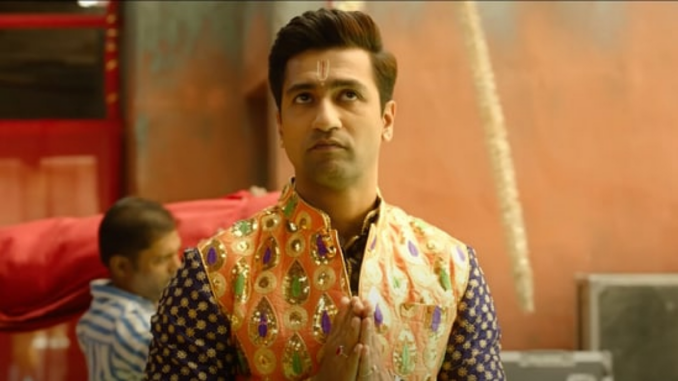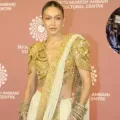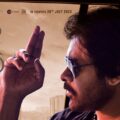
Yash Chopra started his directing career with “Dhool Ka Phool” (1959) and “Dharmputra” (1961), both strongly anti-communal films.
In both, a child born to parents of one religion is adopted by a family of another. It was soon after Partition, communal hate was still in the air.
Filmmakers believed in cinema as a means of social change.The tragedy of our times is that a film like “The Great Indian Family” needs to be made to give audiences a lesson in secularism – as to say that if politicians won’t take up the responsibility, cinema will.
Pity then that “The Great Indian Family”, directed by Vijay Krishna Acharya, remains at the level of a simplistic sermon for the democratically challenged.
About “The Great Indian family” movie
The word democracy is significant here, because the patriarch of the Tripathi clan believes that everyone in the family should vote on major decisions.
Siyaram Tripathi (Kumud Mishra) is a priest who is revered in his town. His brother Balaram (Manoj Pahwa) and son Ved Vyas Billu (Vicky Kaushal) assist him.
Billu is also a popular bhajan singer, belting out pop devotionals with the energy of a rock star.
The film’s premise is so flimsy that a lot of padding, back stories and song and dance are needed to bring it to the main point: Billu discovers that he was born to a Muslim.
He is understandably blindsided by the revelation. If Billu remains a Hindu, he is “tainted” in the eyes of purists; if he accepts Islam, he rejects the beliefs with which he grew up.
There has to be an “All blood is red” monologue at some point, and it predictably drops.
A friend resentful of Billu successfully wooing the woman he likes (Manushi Chhillar) spreads the news.
A rival priest, Mishra (Yashpal Sharma), jealous of Tripathi’s position, takes advantage of it to discredit him.
Fortuitously, Billu has befriended a Muslim man, Abdul, and finds shelter there, when his own uncle is not sure whether he belongs with them.
Abdul’s family seems more liberal, but Acharya has to force this point to remind viewers of a syncretic Indian culture that is slowly being eroded.
A movie shot with the bright colours and bling that have come to symbolise small-town India rests on the performances of Kumud Mishra and Vicky Kaushal.
Both deliver what is required of them: Mishra brings gravity to his role, while Kaushal succeeds in conveying Billu’s anguish and internal conflict.
The crisis of faith may have been artificially inflated, but when questions of identity and orientation become crucial to survival, it becomes imperative to raise them.
One only wishes that The Great Indian Family had been less superficial. There was Dharmputra as an existing model.







